From the inception, ICHD has worked with various stakeholders in Bangladesh and beyond including Ministry of Women and Children Affairs, Department of Women Affairs, Directorate of Primary Education, Early Learning Child Development Project of Bangladesh Shishu Academy, Sustainable Social Services-SSS (Formerly known as Integrated Community Development-ICDP) Project of Chittagong Hill tract Development Board, Bangladesh ECD Network (BEN), UNICEF, UNESCO, Save the Children, GIZ, Concern Worldwide, Asia Pacific Regional Network for Early Childhood (ARNEC), University of Hong Kong etc. on national level research, program and curriculum development, mapping and policy issues.
International, Regional and National
To Govt. Higher Officials in 34 Districts
ARNEC, MOWCA, UNICEF, WFP, PHULKI, GIZ, MOHFW
ARNEC, MOWCA, UNICEF, WFP, UNESCO, GIZ, BSA etc.
ARNEC, SAFECDP, BEN
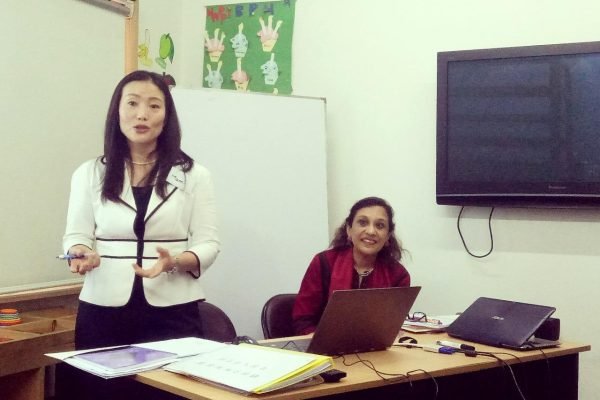
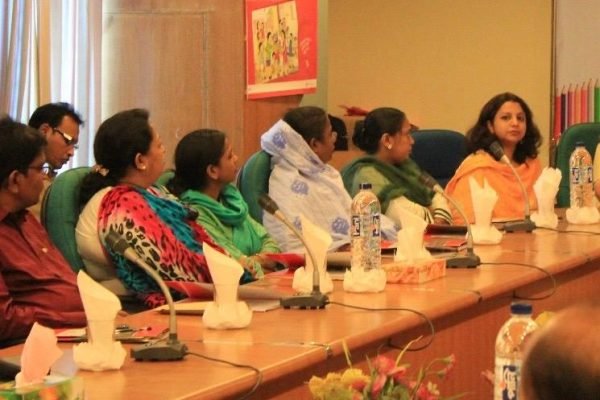
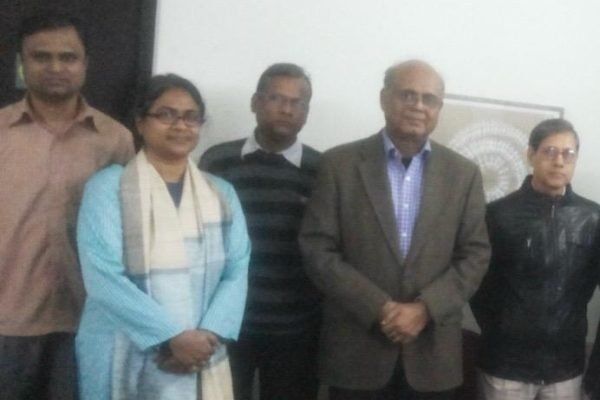
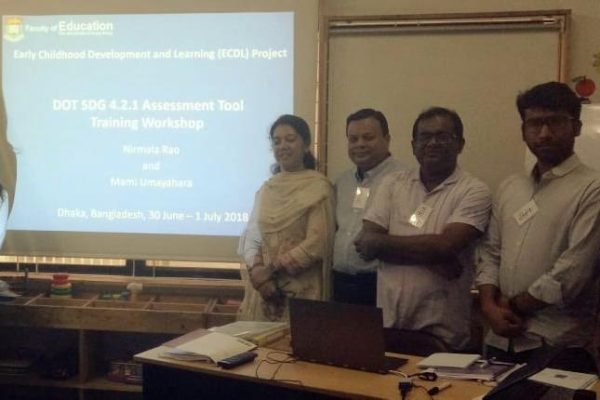
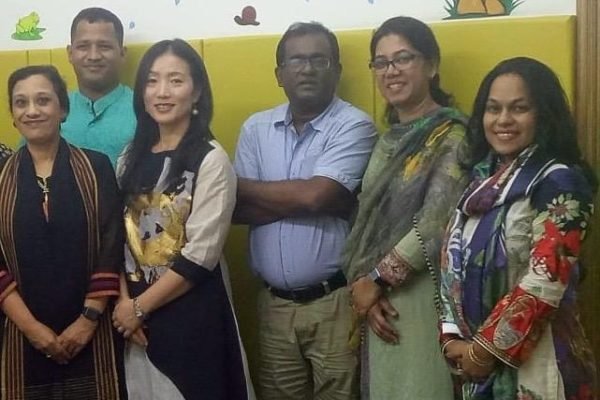
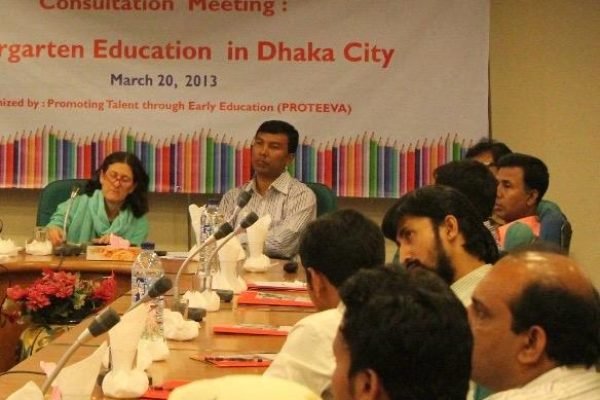
In 2018, conducted a study titled “Assessing Early Childhood Development and Learning: The First Step to Building Human Capital in One Belt One Road Countries” in Bangladesh, using the DOT SDG 4.2.1 Assessment Tool. The study was commissioned by the Faculty of Education, University of Hong Kong.
In 2015, conducted a comprehensive review of the Early Learning for Child Development Project (ELCDP) under the Ministry of Women and Children Affairs. The study was commissioned by UNICEF and carried out jointly by Maxwell Stamp Limited and ICHD.
In 2018, conducted an assessment of the Early Childhood Development and Nutrition component of the Urban Pavement Dwellers Programme (Amrao Manush), commissioned by Concern Worldwide to evaluate program effectiveness and impact on vulnerable urban children.
In 2018, conducted a comprehensive country-level mapping of Early Childhood Development (ECD) data in Bangladesh through desk reviews and key stakeholder interviews, as assigned by the Asia-Pacific Regional Network for Early Childhood (ARNEC).
In September 2012, conducted a comprehensive desk review study for the Asia-Pacific Regional Network for Early Childhood (ARNEC) focusing on children’s transition from home to Early Childhood Care and Education (ECCE) programs. The study analyzed around 50 documents—including academic research, policy papers, reports, and program data—to categorize, synthesize, and interpret findings related to how this transition shapes children’s personal and social development.
In September 2012, conducted a comprehensive mapping of pre-primary education in Bangladesh, commissioned by the Directorate of Primary Education (DPE) and UNICEF. The study analyzed secondary data sources including the 2011 Bangladesh Population and Housing Census, DPE administrative data from 2012, and information from major NGOs and the Early Learning for Child Development Project (ELCDP) to provide an overview of the pre-primary education landscape.
In July 2012, contributed as a knowledge partner to the University of Sussex’s project, "Real-Time Monitoring for the Most Vulnerable: Pre-Primary Education in Bangladesh," providing expertise and insights to support effective monitoring and evaluation of early education for vulnerable children.
In May 2013, contributed to a case study examining the post-2015 Millennium Development Goals (MDG), Education for All (EFA) agenda, and national planning goals and targets in Bangladesh. Prepared for the Graduate Institute of International and Development Studies, Geneva, and the Swiss Development Corporation, with Manzoor Ahmed as the principal researcher. The study was published in the NORRAG occasional paper series.
From June to November 2013, conducted an in-depth case study commissioned by UNESCO Asia-Pacific Regional Office to identify successful and innovative initiatives accelerating Education for All (EFA) in Bangladesh. The study focused on the introduction of one-year pre-primary education and the School Level Improvement Plan (SLIP) as key examples of creative contributions to EFA progress, providing valuable lessons for further regional advancement.
Conducted on behalf of the Ministry of Primary and Mass Education and assigned by UNESCO Bangladesh Office, the 2013-2014 national review documented Bangladesh’s progress toward Education for All (EFA) goals. The study examined implementation experiences, lessons learned, challenges, and innovative practices, aiming to strengthen efforts to address EFA shortfalls. It also informed public discourse on the future education agenda for the post-2015 era. ICHD provided logistical and technical support to the national study team throughout the process.
From 2014 to 2016, conducted a longitudinal study on the implementation of the "Each Child Learns" component under the 3rd Primary Education Development Programme (PEDP3). Commissioned by UNICEF and the Directorate of Primary Education, Ministry of Primary and Mass Education, the study received technical support from ICHD in collaboration with Maxwell Stamp Limited.
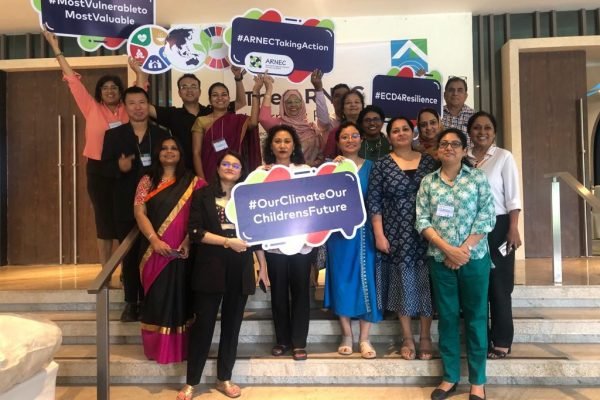
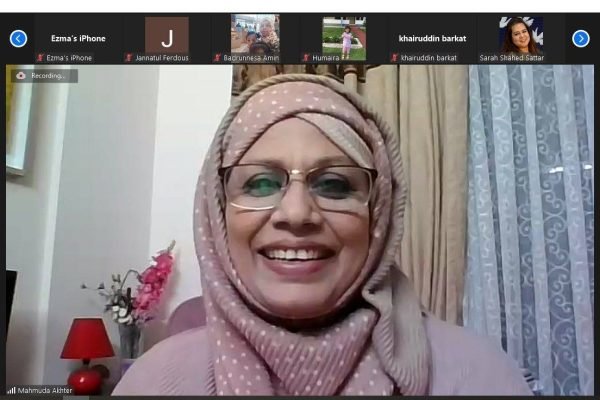
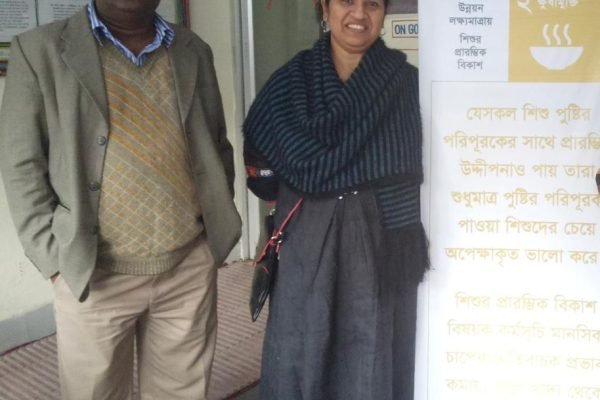
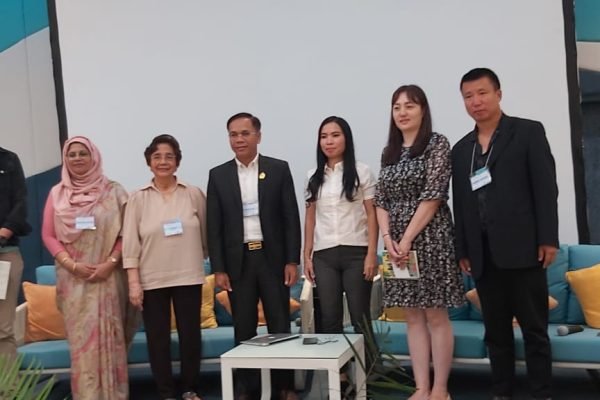
Between July 2016 and June 2019, a three-year program under the revenue budget delivered two courses—“How Children Learn” and Parenting Education—to 2,425 participants across 34 districts. The training covered national to local levels and engaged government officials, teachers, journalists, Imams, NGO representatives, councilors, and other key stakeholders.
In 2018, conducted specialized training for officers and caregivers as part of the “Establishment of 20 Daycare Centre Project” implemented by the Department of Women Affairs, under the Ministry of Women and Children Affairs. The training aimed to enhance the capacity of daycare service providers to ensure quality early childhood care.
Conducted a specialized short course on “How Children Learn” for officers of the Sustainable Social Services in Chittagong Hill Tracts Project under the Chittagong Hill Tracts Board, aiming to build their understanding of child development and learning processes.
Collaborated with GIZ Bangladesh to develop a Daycare Operation Manual, provide training for caregivers of daycare centers in garment factories, and design material packages to enhance early care and learning environments.
Developed a web-based platform to deliver an online course titled “How Children Learn?” focused on early childhood development, enabling wider access to quality learning resources for educators and caregivers.
Conducting both face-to-face and online courses on “How Children Learn?” for individuals and high- to mid-level officials from government, non-governmental, UN, and private organizations interested in early childhood development.
From March to May 2013, collaborated with Save the Children on a pilot project to assess and improve private kindergartens’ capacity in promoting early childhood development and pre-primary education. Conducted a survey of 62 kindergartens in Mirpur, Dhaka, and held consultation workshops with principals and teachers from 50 schools. Ultimately, 37 principals and 44 teachers received training focused on child development to enhance curriculum quality, teaching skills, and learning environments.
Provided technical support to Phulki’s UNICEF-supported ‘Mothers@Work’ programme by developing an ELDS-based early stimulation curriculum for children aged 0–3 years, a parenting education manual, a Standard Operating Procedure (SOP), and monitoring checklists for both administrative oversight and tracking children’s developmental progress.
Commissioned by UNICEF, conducted the development and administration of a harmonized Para Worker Training Package for the Integrated Community Development Project (ICDP), successfully completed by February 2016 to strengthen community-based service delivery.
Supported the Ministry of Women and Children Affairs and World Food Programme partnership by developing the training framework for the Improved Maternity Lactating Mother Allowance (IMLMA) Programme. This included designing training modules, manuals, and related materials to enhance program implementation.
As a member of the Bangladesh ECD Network (BEN), provided technical inputs for preparing the ECCD policy and operational plan dissemination package. Contributed to formulating guidelines and tools for developing costed action plans across ministry, sectoral departments, districts, sub-districts, and unions, and helped design mechanisms, guidelines, and tools to support policy rollout and monitoring at multiple administrative levels.
From mid-January to mid-May 2014, ICHD served as a knowledge partner to D-net, providing technical support for the Aponjon extension project. This involved developing approximately 1,050 audio messages on Early Childhood Care and Development topics—including health, nutrition, early stimulation, responsive parenting, and family education—to be widely disseminated via a mobile phone platform.
In 2017, published the book How Children Learn, which explores foundational concepts of early childhood development and learning. The book was officially launched by the Honorable State Minister of the Ministry of Women and Children Affairs, marking its significance in the national discourse on early learning.
Provided technical support to various organizations for developing storybooks to support children's early literacy and cognitive development, fostering imagination, language skills, and a love for reading.
Currently working with the Asia-Pacific Regional Network for Early Childhood (ARNEC) to disseminate three key articles published by the Bernard van Leer Foundation (BvLF), focusing on the impacts of climate change on young children and advocating for responsive early childhood policies and practices.
Currently working with the Asia-Pacific Regional Network for Early Childhood (ARNEC) to disseminate three key articles published by the Bernard van Leer Foundation (BvLF), focusing on the impacts of climate change on young children and advocating for responsive early childhood policies and practices.